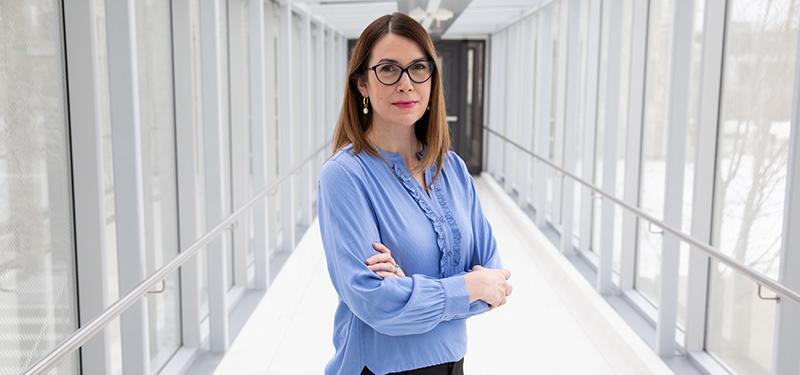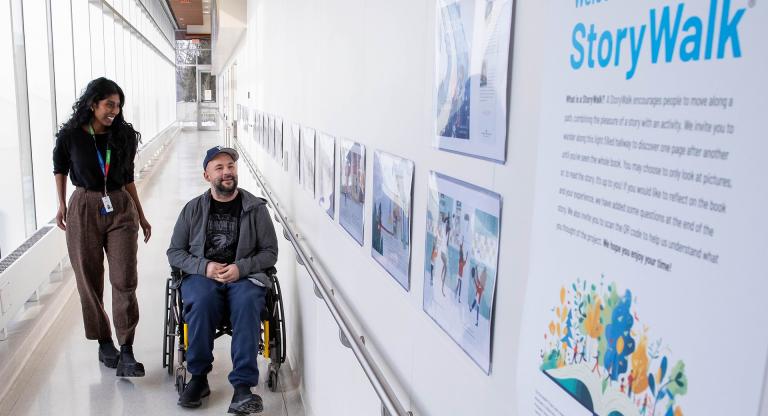Five questions about loneliness

We asked Katherine Gatt, the professional practice leader for Recreation Therapy at Hennick Bridgepoint Hospital about loneliness and the effects it can have on members of the community. Here is what she said.
What is loneliness?
Loneliness is generally considered to be an undesirable subjective experience, related to unmet intimate and social needs.
Understanding and addressing loneliness within health care is essential as it is consistently identified as detrimental to an individual’s overall health and well-being.
Can you feel alone even though you’re around other people?
Loneliness varies among individuals and feeling lonely does not necessarily mean being alone. It is possible that people can feel lonely among a crowd. For some solitude is pleasant and being alone does not necessarily mean feeling lonely.
How does loneliness impact the health of older adults?
Older adults are at increased risk of loneliness due to social vulnerability resulting from the loss of aging spouse, relatives, and friends, limited economic resources, and impaired physical function and mobility. Personal factors as well as community constraints such as limited affordable accessible housing and transportation, increase older adult’s risk of experiencing loneliness.
How does Therapeutic Recreation combat loneliness in the hospital setting?
At Hennick Bridgepoint Hospital Therapeutic Recreationists and Recreation Therapy Assistants aim to reduce loneliness for long stay patients by providing meaningful strategic opportunities for social engagement and connection. Therapeutic methods such as music, art, exercise, gardening, humour, reminiscence, and animal assisted therapy promote interaction with others and the environment.
Considering that loneliness gives rise to a number of health problems, it is essential to find innovative ways to address this issue. Therapeutic Recreation as a health discipline uses practical interventions, leisure education and recreation participation to provide meaningful and strengths-based interventions to meet individual’s goals while increasing health, well-being and quality of life.
How can loneliness be addressed in the community?
Recognizing that transitional life events can increase loneliness, we teach patients skills and resources for continued leisure engagement and belonging within their communities. It’s essential that all Canadians have access to inclusive, social leisure and recreation opportunities.
In addition to older adults, people living with disability are at an increased risk for experiencing loneliness. Decreasing loneliness must be systemically addressed in response to research and that links loneliness to a range of negative physical and mental health. Understanding and addressing experiences of loneliness and improving social connectedness is a public health responsibility.












